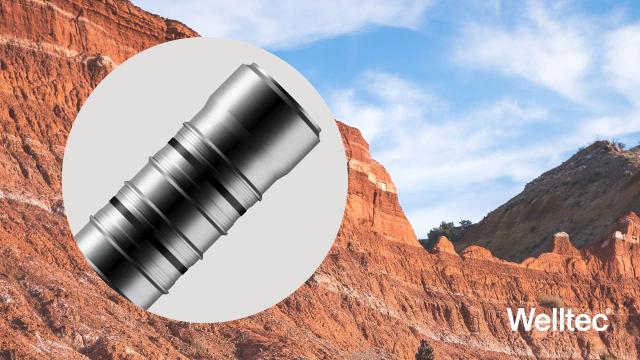
A failure in annular isolation can lead to Sustained Casing Pressure. The Welltec® Light Packer (WLP) creates an effective seal, reduces emissions, and prevents costly remediation.
Sustained Casing Pressure (SCP)—also referred to as Bradenhead Pressure—affects almost a third of wells globally and is present within multiple annuli. Since 2009, well integrity issues have cost operators more than $75 billion, which has provided the impetus for the industry to focus on and rework the management of regulations related to the management of the integrity oil and gas wells.
SCP is defined as measurable pressure at the wellhead that is present in any well annulus, which rebuilds after being bled down, and is not caused solely by temperature fluctuations or artificially applied pressure. SCP can occur due to several reasons, including but not limited to casing leakage, improper mud displacement prior to the primary cementing, or influx of gas as the cement transitions to solid. A common cause of SCP is the migration of gas or fluid from a high-pressured subsurface formation through a leaking cement sheath which may have cracked during the life of the well. The cement sheath often forms part of the primary or secondary well barrier, and a leak through it could be manifested in one or more casing annuli of the well.
SCP compromises the integrity of oil and gas wells and poses several safety risks during well construction and production. In the event of a major blowout, there is also the potential for environmental consequences, such as contamination of groundwater or direct release of methane into the atmosphere. The occurrence of any of these will incur very high remediation costs and can cause significant damage to the reputation of the operator.
Challenges of annular isolation
As wells are drilled deeper, faster, and with more complex trajectories, isolating the annulus between the production casing and formation using cement alone can be challenging. Sources of difficulty include under-pressured formations, over-pressured formations, gas migration during curing leading to cement contamination, and casing eccentricity.
Although short-term solutions have been deployed in the past with mixed results, failure in annular isolation at any point—from well construction to well abandonment—will result in SCP, thus necessitating a life-of-well solution. To address this challenge, Welltec developed and deployed it’s all-metal Welltec Light Packer (WLP) to assist the cement during curing. More importantly the WLP provides an independent annular sealing mechanism to prevent SCP over the entire life-of-well.
A case from the field
North America – A client operating in a US shale play was experiencing SCP on 30% of their inventory of drilled but uncompleted (DUC) wells. The wells were drilled and cased with 5.5-inch production casing cemented to surface. After returning to complete the wells, SCP was observed, therefore preventing the multi-stage frac phase of completing the wells.
Through collaboration with Welltec, a Welltec Light Packer (WLP) was identified as an ideal solution due to its extensive global track record in providing isolation between the casing and open hole, including when it is set in wet cement.
After the casing was ran to the total depth (TD), the cement job completed, and the wiper plug landed, the WLP was expanded with hydraulic pressure applied from the surface using cement pumps. During the cementing operation, the casing string was rotated and reciprocated without risking damages to the WLP.
With the WLP in place, measurements made with surface pressure gauges at the wellheads, confirmed the absence of SCP.
The risk of SCP is eliminated when the WLP is deployed as an additional isolation mechanism, providing assurance in case the cement fails to provide the required isolation. The operator has since inserted the WLP into the drilling programs of all the future well pads.
To contact your local Welltec representative, and for more information about the Welltec Light Packer, please visit https://bit.ly/2UiDzMF.

